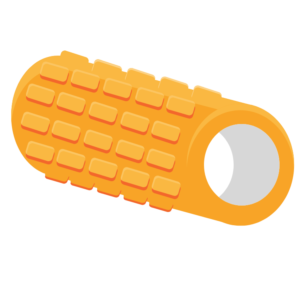3. Common Mistakes
COMMON MISTAKES
DURING COMPETITION:
🧘🏼♂️ Relaxation
- Adopt a state of anger, stress or alteration as soon as the first part is finished and transmit it as soon as you enter the locker room.
- Start talking in the locker room about actions that have happened in the first half and can generate a state of fight or discussion.
- Recriminate actions or behaviors that have happened in the first part of your classmates.
🍉 Water and Electrolyte Replacement
- Drink more liquid than you should.
- Drinking anxiously, very quickly, or without breaks.
- Thinking that you don’t need to drink water.
- Eating foods that are difficult to digest.
- Eat food shortly before leaving the locker room to warm up again.
💉 Medical Surveillance
- Having any discomfort and not indicating it to the medical body for fear of being changed.
- Not indicating exactly the pain/discomfort you have or downplaying it.
- Not talking to the medical staff as soon as you arrive at the locker room and waiting just before going to the field so that they “treat you quickly” with quick solutions that are not reliable and effective.
🏃🏼♂️Warm-up (halftime)
- Not performing the re-activation exercises with the intensity that they should be done.
- Starting the exercises with excessive activation and intensity and not respecting the progression in all of them.
- Not being focused on the warm-up exercises you are doing.
OUTSIDE OF COMPETITION:
❄️ Cryotherapy
- Carrying out cold bath treatment on day -1 (the day before the competition) or on match day.
- Staying longer than recommended thinking that the longer you stay, the better for your body and recovery.
- In the case of contrasting hot and cold water, finish with hot water instead of finishing with cold water.
- Staying in hot water longer than cold water (because it is a better feeling).
🙆🏼♂️ Passive Static Joint Mobility (Stretching)
- Excess stretch duration in warm-up.
- Short duration of stretching in warm-up.
- Short duration of stretching outside of training.
- Doing it after the pre-match activation session (day -1).
🤕 Treatments with Physiotherapist
- Only going to the physical therapist to treat you when you have any discomfort or injury. You must go assiduously so that the physiotherapist knows how your muscles are.
- Doing more exercises than the physiotherapist tells you (thinking that the more you do, the better).
 Foam Roller
Foam Roller
- Spending longer than recommended on the treadmill or bike.
- Not applying the right amount of force when rolling.
- Having an inappropriate posture when doing certain exercises and that later generate discomfort.
- Using the Foam Roller during an intense workout.
🚲 Active Recuperation
- Spend longer than recommended on the treadmill or bike.
- Not respecting the intensities that are advised, train more intensely and thus, hinder the recovery process.
- Take the body to situations of high intensity and interrupt the recovery of your nervous system.
- Do not listen to your body if you have any discomfort and run (if you have discomfort when running).
🦵🏻 Pressotherapy
- Use them on match day.
- Use them the day before the game.
- Overusing thinking that the longer you stay, the better.
- Using them without the supervision of the physiotherapist (he is the one who will tell you which program and in which muscles-joints you have to apply it).
💤 Sleep
- Not establishing a routine during the week to help have better biorhythms.
- The use of new technologies (watching TV, playing a video game, being with the mobile) just moments before going to sleep (it makes it difficult for your activation level to decrease and you remain active moments before going to sleep).
- Change in sleep routines before competition. The most important thing is to have a good rest days before the competition starts.
